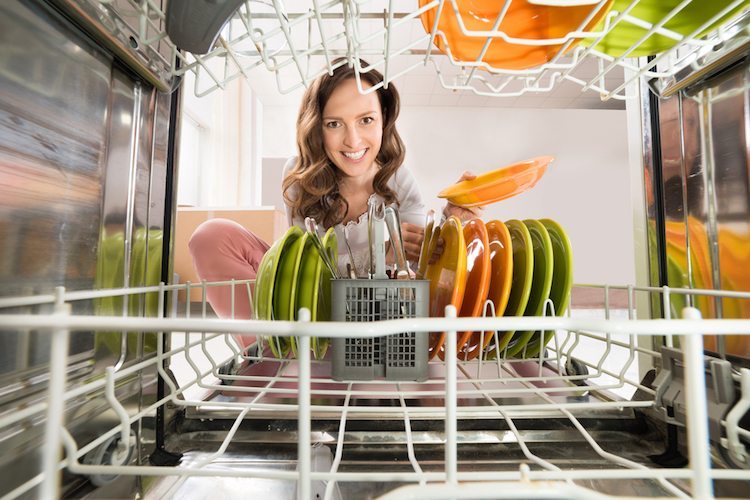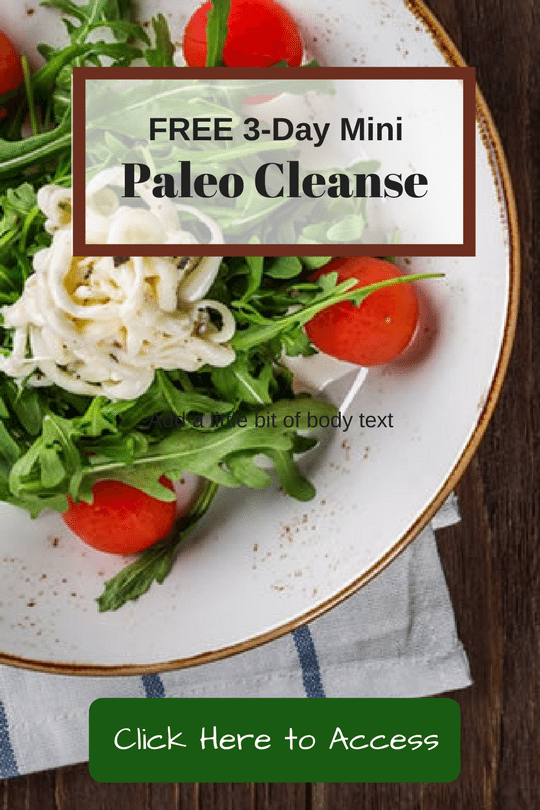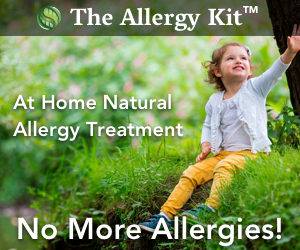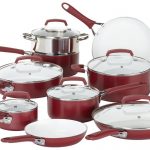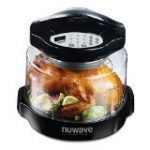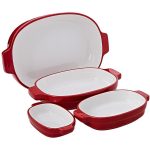Toxins in Cleaning Products – Be Informed and Seek Alternatives for Optimal Health
When looking to make your home a safer and healthier place, a good place to start is in the kitchen. Toxins can be found in many places in your kitchen including your cleaning products. Removing harmful chemicals and materials from your kitchen can be a great way to ensure that you and your family are living a much healthier life. Here are some of the sources of kitchen toxicity as well as great ways to rid your kitchen of these harmful items that could damage your health.
Teflon and Non-Stick Pans
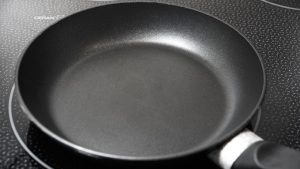 Non-stick surfaces are typicaly metal pans (such as aluminum) that are coated with a synthetic polymer called polytetrafluoroetheylene (PTFE) – which isalso known as Teflon. Have you ever heard of a Teflon flu? Many homeowners are not aware that cooking at high heats with Teflon or other non-stick pans can release toxic chemicals into the air. These toxic chemicals have been known to kill pet birds and give homeowners a sickness that is very similar to the flu. The long-term exposure to Teflon flumes is not known. Furthermore, sections of the Teflon coating can scrape off and end up in your food. For these reasons, we highly suggest that you avoid non-stick pans to reduce kitchen toxicity. Great ceramic or stainless steel options are readily available. Look for PTFE PFOA and Cadmium Free cookware such as the WearEver Pure Living set.
Non-stick surfaces are typicaly metal pans (such as aluminum) that are coated with a synthetic polymer called polytetrafluoroetheylene (PTFE) – which isalso known as Teflon. Have you ever heard of a Teflon flu? Many homeowners are not aware that cooking at high heats with Teflon or other non-stick pans can release toxic chemicals into the air. These toxic chemicals have been known to kill pet birds and give homeowners a sickness that is very similar to the flu. The long-term exposure to Teflon flumes is not known. Furthermore, sections of the Teflon coating can scrape off and end up in your food. For these reasons, we highly suggest that you avoid non-stick pans to reduce kitchen toxicity. Great ceramic or stainless steel options are readily available. Look for PTFE PFOA and Cadmium Free cookware such as the WearEver Pure Living set.
Problems with Microwaves
While microwaves are a very controversial subject, many studies have shown that it might be safer to avoid using them. The radiation that is used to heat your food could be harmful to your health. The radiation used to heat food may also alter the molecular structure of food and this affects our bodies. And the plasticizers in the containers used in the microwaves have been found to leach into the food in during microwaving. Eve more, the microwave alters the energy and vitality int he food making it less nourishing to our bodies.
To maintain health, many people suggest choosing different forms of cooking your food rather than reverting to the convenience of a microwave. It is an individual choice and a difficult one but certainly something to consider when considering kitchen toxicity. We replaced our microwave with a Nuwave Infrared Countertop Oven, and love it!
Aluminum Pans and Foil
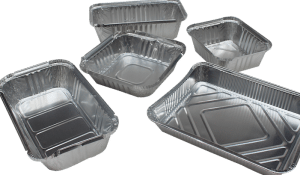 We strongly suggest that you avoid cooking with aluminum pans or aluminum foil due to the fact that aluminum can be released into your food. Aluminum in the brain has been correlated with an increased risk of Alzheimer’s disease. Alzheimer’s disease is a deadly condition that ravages your memory and makes it eventually impossible for your body to perform normal functions. We now have all but eliminated cooking with aluminum pans or aluminum foil (and stopped using deodorants containing aluminum) in an effort to minimize the factors associated with the development of this deadly disease. Instead opt for a ceramic or glass baking set such as the KitchenAid Ceramic Baking Set or
We strongly suggest that you avoid cooking with aluminum pans or aluminum foil due to the fact that aluminum can be released into your food. Aluminum in the brain has been correlated with an increased risk of Alzheimer’s disease. Alzheimer’s disease is a deadly condition that ravages your memory and makes it eventually impossible for your body to perform normal functions. We now have all but eliminated cooking with aluminum pans or aluminum foil (and stopped using deodorants containing aluminum) in an effort to minimize the factors associated with the development of this deadly disease. Instead opt for a ceramic or glass baking set such as the KitchenAid Ceramic Baking Set or
BPA and Other Plastics
Plastics can be a very dangerous item in your kitchen. Cooking with plastic containers or drinking from non-BPA bottles can result in inadvertently ingesting toxic chemicals that will can disrupt your hormones and other bodily functions. Avoid can with BPA linings – read labels, and investigate brands to identify which are BPA-free. This can go along way to reduce the BPA levels in your body. Avoid drinking out of water bottles that are not BPA free (particularly if the bottles have been stored in heat and/or sun). Make sure that all of your plastic containers are safe for storing food before you put your health at risk.
Don’t Use Hand Sanitizers
When you use hand sanitizer, you are causing more harm to our body than good.Many hand sanitizers contain an antibiotic compound called triclosan or triclocarban. There is a growing body of evidence to suggest these compounds may not be inert – and in fact, may be harmful to your body. These chemical are absorbed through your skin and can accumulate over time. Furthermore, hand sanitizers kill off the good bacteria on your hands that you need to build up healthy immunities.
Hand sanitizers can be especially dangerous for children. Kids are great at putting their hands in their mouths for any given reason. Alcohol is a major ingredient in many hand sanitizers. Children can absorb this into their bodies after cleaning their hands which can result in poisoning. Recently in California, six teens were hospitalized after drinking hand sanitizer. Perhaps it is just a better idea to not have these dangerous items in your home? There are much safer non-toxic alternatives – many with essential oils that are very effective again killing germs.

Use Only Non-Toxic Cleaning Products
There are many toxins that are hiding in your everyday household cleaners. These toxins can be dangerous to you, your children, and your pets. When food is eaten off of surfaces that have been cleaned by these toxic products, dangerous chemicals are introduced into the body. Chlorine is one such example, and is a a very common example of a toxic chemical that is used regularly in household cleaners. Thankfully there are many non-toxic alternative chlorine-free cleansers that are much better for your family’s health.
Filter Your Tap Water
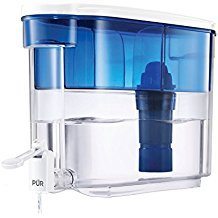 Most tap water is much more contaminated than you might think. One of the biggest problems with tap water today is the lead content in the water systems in many parts of North America. There are pretty extreme cases of this like in Flint, Michigan. Residents in Flint had to have drinking water shipped in by the truckload due to faulty pipes. Even in your own home, damaged pipes can lead to high lead content in your water.
Most tap water is much more contaminated than you might think. One of the biggest problems with tap water today is the lead content in the water systems in many parts of North America. There are pretty extreme cases of this like in Flint, Michigan. Residents in Flint had to have drinking water shipped in by the truckload due to faulty pipes. Even in your own home, damaged pipes can lead to high lead content in your water.
While your water supply may not be this contaminated by lead, there still may be minerals and other bacteria in your tap water. There are many high-quality water filters you can purchase that will make your tap water much more suitable for drinking. This is a great way to eliminate bacteria and contaminants, reducing kitchen toxicity.
Avoid Food Additives
There are many chemicals that are added to your everyday foods. It is important that you are avoiding the foods in your grocery store that have these additives. MSG is a great example of one additive you should always avoid. MSG is usually found in spices and flavorings of Asian dishes. It is an “excitotoxin” that can damage brain cells in sensitive individuals.
High fructose corn syrup (HFCS) is an additive that is used widely in processed foods. It has been used to replace regular sugar as it is cheap to produce. The problem with HFCS additive is its addictive nature (and that it is metabolized differently from regular sugar). Have you ever wondered why you are always wanting more of many processed? It is probably because of the HFCS. High Fructose Corn Syrup is also highly concentrated in soda. Dr. Mark Hyman claims, that, “When used in moderation [HFCS] is a major cause of heart disease, obesity, cancer, dementia, liver failure, tooth decay, and more”. Seek foods without HFCS for your family.
Any artificial dyes are also something that you want to avoid. Look at the ingredients in your foods before you purchase them to make sure they are not made with artificial colors. Artificial sweeteners are an additive that are also misunderstood (and misrepresented). While most individuals think that diet sodas and other so-called healthy options of snack foods are better for you, the artificial sweeteners can actually be worse for your health. Avoid artificial sweeteners as they have been linked to cancer and other serious health problems.
Get Rid of Microbes in Your Kitchen
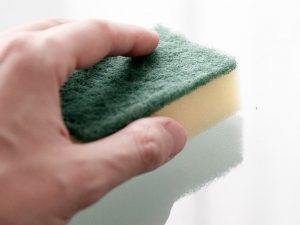 Getting rid of germs and bacteria in your kitchen is probably one of the most important things you can do on this list. Sponges and towels in your kitchen can be a perfect place for microbes to grow. It is important that you thoroughly clean your sponges and towels as well as your cutting boards often. (Sponges can even be washed in the dishwasher!). This will help disinfect these items, eliminating the germs and bacteria that may be growing within them (thus reducing kitchen toxicity).
Getting rid of germs and bacteria in your kitchen is probably one of the most important things you can do on this list. Sponges and towels in your kitchen can be a perfect place for microbes to grow. It is important that you thoroughly clean your sponges and towels as well as your cutting boards often. (Sponges can even be washed in the dishwasher!). This will help disinfect these items, eliminating the germs and bacteria that may be growing within them (thus reducing kitchen toxicity).
It is also important to make sure that you are not keeping dirty dishes in your sink for too long before washing as this, too, can encourage unwanted growth of bad bugs in your kitchen.
You Can Have a Healthy, Safe Kitchen!
With a little awareness and a few changes in your habits and practices, you can shift toward a healthier home environment and particularly your kitchen!
Ready for more?
Ready to reduce toxins in your diet, physical and emotional body, and daily life?
Here’s a program that will leave you feeling re-energized, recharged, renewed and ALIVE again… in 28 Days!


